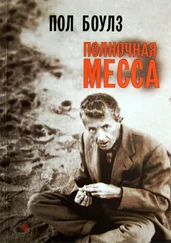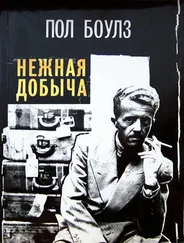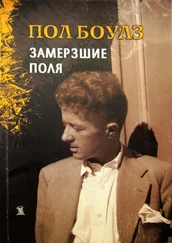Пол Боулз - Let it come down
Здесь есть возможность читать онлайн «Пол Боулз - Let it come down» весь текст электронной книги совершенно бесплатно (целиком полную версию без сокращений). В некоторых случаях можно слушать аудио, скачать через торрент в формате fb2 и присутствует краткое содержание. ISBN: , Жанр: Современная проза, на английском языке. Описание произведения, (предисловие) а так же отзывы посетителей доступны на портале библиотеки ЛибКат.
- Название:Let it come down
- Автор:
- Жанр:
- Год:неизвестен
- ISBN:1-931082-19-7
- Рейтинг книги:5 / 5. Голосов: 1
-
Избранное:Добавить в избранное
- Отзывы:
-
Ваша оценка:
- 100
- 1
- 2
- 3
- 4
- 5
Let it come down: краткое содержание, описание и аннотация
Предлагаем к чтению аннотацию, описание, краткое содержание или предисловие (зависит от того, что написал сам автор книги «Let it come down»). Если вы не нашли необходимую информацию о книге — напишите в комментариях, мы постараемся отыскать её.
Let it come down — читать онлайн бесплатно полную книгу (весь текст) целиком
Ниже представлен текст книги, разбитый по страницам. Система сохранения места последней прочитанной страницы, позволяет с удобством читать онлайн бесплатно книгу «Let it come down», без необходимости каждый раз заново искать на чём Вы остановились. Поставьте закладку, и сможете в любой момент перейти на страницу, на которой закончили чтение.
Интервал:
Закладка:
There were many banks, and each one he came to was closed. «Too late,» he thought, grimly. «Of course».
He went on, found Wilcox’s office easily. It was upstairs over a large tearoom, and the entire building smelled appetizingly of pastries and coffee. Wilcox was there, and made him feel a little better by saying with a wide gesture: «Well, here’s your cage». He had half expected him to make some sort of drastic announcement like: «Listen, old man, I guess it’s up to me to make a confession. I’m not going to be able to use you here. You can see for yourself why it’s out of the question». And then he might have offered to pay his fare back to New York, or perhaps not even that. Certainly Dyar would not have been extremely astonished; such behavior would have been in keeping with his own feeling about the whole undertaking. He was prepared for just such a bitter blow. But Wilcox said: «Sit down. Take the load off your feet. Nobody’s been in yet today, so there’s no reason to think they’ll come in now». Dyar sat down in the chair facing Wilcox at his desk, and looked around. The two rooms were uncomfortably small. In the antechamber, which had no window, there were a couch and a low table, piled with travel booklets. The office room had a window which gave on a narrow court; besides the desk and the two chairs there was a green filing cabinet. The room’s inhospitable bareness was tempered by the colored maps covering the walls, drawing the eye inevitably to their irregular contours.
They talked for an hour or so. When Dyar remarked: «You don’t seem to be doing a rushing business, do you?» Wilcox snorted disgustedly, but Dyar was unable to interpret his reaction as one of sincere discontent. The Marquesa was obviously correct: there was a slight mystery about his set-up. «I’ve got to change some money,» he said presently. Wilcox might just possibly suggest an advance.
«What have you got?» asked Wilcox.
«Express checks».
«I’ll cash whatever you want. I can give you a better rate than most of the banks, and a good deal better one than the money stalls».
Dyar gave him a fifty-dollar check. When he had his wallet stuffed with hundred-peseta notes and felt a little less depressed about his finances, he said: «When do I start work?»
«You’ve started,» Wilcox replied. «You’re working now. There’s a guy coming in here this afternoon, a customer of mine. He travels a lot, and always books through me. He’ll take you down to meet young Ramlal. You’d have to meet him anyway, sooner or later. The Ramlals are great friends of mine. I do a hell of a lot of business with them». This monologue made no sense to Dyar; moreover he had the impression that Wilcox was on the defensive while delivering it, as if he expected to be challenged. Soon enough, he thought, he would know what it was all about. «I see,» he said. Wilcox shot him a glance which he did not at all like: it was hard and unfriendly and suspicious. Then he went on. «I’ve got to be at somebody’s house for drinks around five, so I hope to God he comes soon. You can go down with him and come right back. I’ll wait till you get here. At six-thirty just go out and shut the door behind you. I’ll have a set of keys for you tomorrow». The telephone rang. There ensued a long conversation in which Wilcox’s part consisted mainly of the word «yes» uttered at irregular intervals. The door opened and a tall, slightly stooped gentleman wearing heavy tweeds and a raincoat stepped into the antechamber. Wilcox cut his telephone conversation short, stood up, and said: «This is Mr. Dyar. This is Mr. Ashcombe-Danvers. I sold him a ticket to Cairo the day after I opened this office, and he’s been coming back ever since. A satisfied client. Or at least I like to think so».
Mr. Ashcombe-Danvers looked impatient. «Ah, yes. Quite». He put his hands behind his back and spun around to examine a large map of the world that hung above the filing cabinet. «I expect we’d better be going,» he said.
Wilcox looked at Dyar significantly. He had meant to tell him a little more about Mr. Ashcombe-Danvers, above all to advise him not to ask any questions. But perhaps it was just as well that he had said nothing.
Dyar slipped into his raincoat as they descended the stairs. «We may as well walk,» said Mr. Ashcombe-Danvers. «It’s stopped raining for the present, and the shop’s not very far». They went down the hill and came out into the wide square which had been empty last night save for the taxis; now it was a small city of natives engaged in noisy commerce. «Chaos,» said Mr. Ashcombe-Danvers, a note of satisfaction in his voice. As they went under the bare trees in the center of the square the water dripped down upon their heads. The women huddled in rows along the pavement, wrapped in candy-striped woolen blankets, holding forth great bunches of drenched white lilies and calling out hoarsely for them to buy. The day was coming to a close; the sky was growing duller.
«Shrewd people, these mountain Berbers,» remarked Mr. Ashcombe-Danvers. «But no match for the Indians».
«The Indians?» Dyar looked confused.
«Oh, not your redskins. Our Indians. Moslems, most of them, from India. Tangier’s full of them. Hadn’t you noticed? Young Ramlal, that we’re on our way to see, he’s one. Most shrewd. And his father, old Ramlal, in Gib. Amazing business acumen. Quite amazing. He’s a bandit, of course, but an honest bandit. Never takes a shilling above what’s been agreed upon. He doesn’t need to, of course. His commission’s enormous. He knows he has you and he piles it on because he knows he’s worth it». Dyar listened politely; they were going between two rows of money changers. The men sat behind their small desks directly in the street. A few of them, spotting the two foreigners speaking English, began to call out to them. «Yes! Come on! Yes! Change money!»
«The devil of it is,» Mr. Ashcombe-Danvers was saying, «the authorities are onto it. They know damned well Gib’s one of the most important leakage points».
Dyar said tentatively: «Leakage?»
«Sterling leakage. They know there’s probably twenty thousand pounds slipping out every day. And they’re catching up with some of the chaps. It’s only a question of time before they’ll be able to put a stop to it altogether. Time is of the essence. Naturally it makes a man a bit nervous». He laughed apologetically. «It’s a chance one must take. I like Morocco and my wife likes it. We’re building a little villa here and we must have some capital, risk or no risk».
«Oh, sure,» said Dyar. He was beginning to understand.
Ramlal’s window was piled with cheap wrist watches, fountain pens and toys. The shop was tiny and dark; it smelled of patchouli. Once Dyar’s eyes had got used to the lack of light inside, he realized that all the stock was in the window. The shop was completely empty. A swarthy young man sat at a bare desk smoking. As they entered he rose and bowed obsequiously.
«Good evening, Ramlal,» said Mr. Ashcombe-Danvers in the tone of a doctor making his rounds through a ward of incurables.
«About to get under way?» Ramlal spoke surprisingly good English.
«Yes. Tomorrow. This is Mr. Dyar, my secretary». Dyar held out his hand to Ramlal, looking at Mr. Ashcombe-Danvers. «What the hell goes on?» he said to himself. He acknowledged the introduction.
«He’ll arrange everything,» went on Mr. Ashcombe-Danvers. «You’ll give him the packet». Ramlal was looking carefully at Dyar all the while. Showing his very white teeth he smiled and said: «Yes, sir».
«Got him?» said Mr. Ashcombe-Danvers.
«Yes, indeed, sir».
«Well, we must be going. Your father’s well, I hope?»
«Oh, yes, sir. Very well, thank you».
Читать дальшеИнтервал:
Закладка:
Похожие книги на «Let it come down»
Представляем Вашему вниманию похожие книги на «Let it come down» списком для выбора. Мы отобрали схожую по названию и смыслу литературу в надежде предоставить читателям больше вариантов отыскать новые, интересные, ещё непрочитанные произведения.
Обсуждение, отзывы о книге «Let it come down» и просто собственные мнения читателей. Оставьте ваши комментарии, напишите, что Вы думаете о произведении, его смысле или главных героях. Укажите что конкретно понравилось, а что нет, и почему Вы так считаете.









